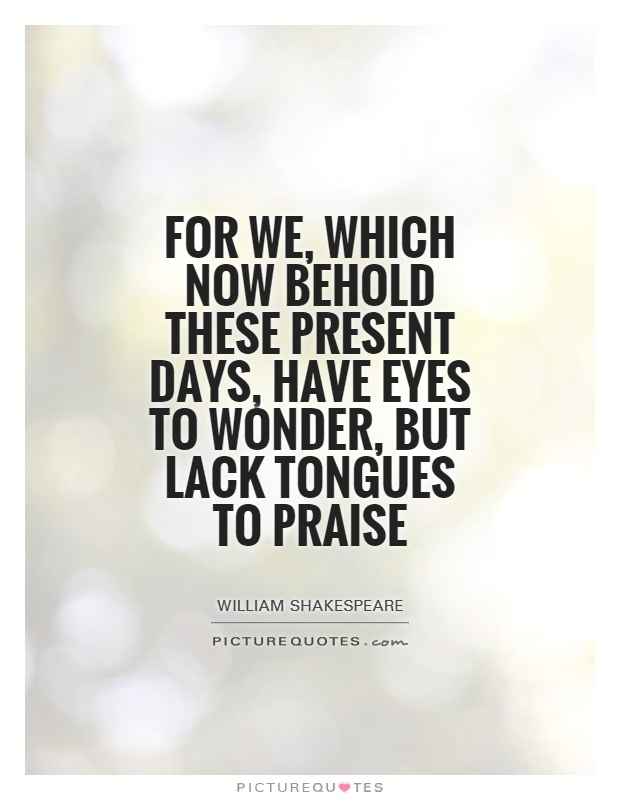For we, which now behold these present days, have eyes to wonder, but lack tongues to praise

For we, which now behold these present days, have eyes to wonder, but lack tongues to praise
The quote “For we, which now behold these present days, have eyes to wonder, but lack tongues to praise” is a profound statement made by William Shakespeare in his play “Henry V”. In this quote, Shakespeare reflects on the human tendency to be amazed by the world around us, yet struggle to find the words to express our admiration and appreciation.Shakespeare was a master of language and his works are filled with beautiful and eloquent expressions of human emotion and experience. In this quote, he captures the essence of the human experience of being in awe of the world around us, but feeling inadequate in our ability to fully articulate our feelings.
The quote can be interpreted in a number of ways. On one level, it speaks to the limitations of language in capturing the full depth and complexity of human experience. We may see and experience wondrous things in the world, but struggle to find the words to convey the depth of our emotions and reactions. This can be frustrating and can lead to a sense of inadequacy in our ability to fully express ourselves.
On another level, the quote can also be seen as a reflection on the fleeting nature of time and the impermanence of the present moment. We may be amazed by the world around us, but our ability to fully appreciate and praise it is limited by the fact that time is constantly moving forward. The present moment is always slipping away from us, leaving us with a sense of longing and nostalgia for what has passed.
Overall, Shakespeare’s quote “For we, which now behold these present days, have eyes to wonder, but lack tongues to praise” is a poignant reflection on the human experience of being in awe of the world around us, yet struggling to find the words to fully express our admiration and appreciation. It serves as a reminder of the limitations of language and the fleeting nature of time, urging us to cherish and savor the present moment while we can.












 Friendship Quotes
Friendship Quotes Love Quotes
Love Quotes Life Quotes
Life Quotes Funny Quotes
Funny Quotes Motivational Quotes
Motivational Quotes Inspirational Quotes
Inspirational Quotes